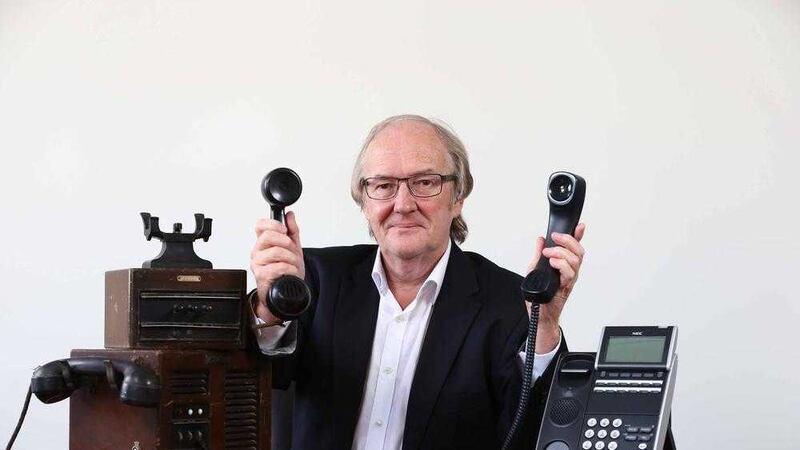THIS month I'm celebrating a major milestone in business having dialled up 50 years working in the telecoms industry.
The industry has changed beyond all recognition over the last half century, and when I am asked what I think the greatest change has been in technology, the mobile phone comes to mind.
It started as a piece of science fiction in 1966 when Star Trek provided Martin Cooper from Motorola with the idea to develop a hand-held mobile phone after he saw Captain Kirk using his communicator. In 1973 the first portable cellular 800 MHz phone prototype was born with Cooper making the very first call from a hand-held mobile phone to Joel S Engel, a rival, at Bell Labs on April 3 1973.
It wasn’t until the early eighties that mobile phones were in the hands of the consumer, and to this day everyone still has fond memories of the ‘brick’ mobile. The transformation in mobiles has been nothing short of revolutionary. The big bricks are gone now and today they have been replaced by pocket sized computers with the ability to connect people via voice and data from anywhere in the world.
The internet has also been a ground-breaking innovation. Before its introduction, people relied heavily on encyclopaedias and textbooks but the internet opened up a whole new world of live information to people across the globe.
It was first invented in 1969, but at the time was pretty much unknown to the public and was mainly only used by government bodies and universities in the United States. In 1991 the world wide web (www) opened to the public, but it wasn’t for another two years before people really started to understand the possibilities of the internet, when it was announced by CERN that the world wide web was free for everyone to use and develop. This was a key factor in the transformational impact it would soon have on the world.
As the internet evolved through the late nineties and early 2000s, PCs and laptops became smaller and server rooms turned into server corners. To me, another one of the greatest changes in technology has been the introduction of the cloud.
Really it wasn’t until 2008 that the use of cloud became a widespread effort to bring the technology mainstream, when Google and Microsoft entered the playing field. The Google App Engine brought low-cost computing and storage services, popularising the concept and by 2009, Google Apps allowed people to store documents within the cloud. Microsoft followed suit with Windows Azure, solidifying the cloud as a market that the tech giants would be expanding and competing in. Apple then followed by developing the iCloud allowing users to sync photos, apps, music and documents across a string of devices.
The internet has also advanced the simple phone call. Consumers can now make free, or very low cost telephone calls over the internet using VoIP. You can call any telephone in the world and any telephone can call you, regardless of what equipment or network the person you are calling uses.
However, consumers do need to be cautious of cheap providers. Similar to recent history when people set up small telephone exchanges in their back garden sheds delivering cheap but very poor quality calls, some cheap VoIP providers are offering poor quality calls to consumers. I can see people taking the cheaper option providing consumers with real problems in the future so my advice would be to go for quality of provider over what may seem the initial cheaper option.
One of the advances in technology which I think people should be aware of is the incessant rise in the use of emails.
While emails are a fantastic tool, particularly in the business world, I do feel they have reduced personal interaction. Sometimes 10 emails can be exchanged regarding something that could be discussed on a two minute phone call. So next time you are in an email exchange, ask yourself is this the best way to communicate?
Personally over the last 50 years, I have enjoyed travelling to see Chelsea play and they are certainly closer to their fourth Premier League title since I first started going to see them in 1969. I’m looking forward to celebrating more victories with my favourite team in the years to come.
I also look forward to the day when people will receive the answer to a message before it has even been sent through the thought process. With the rate technology is progressing, I’m confident people won’t have to wait another 50 years for that to happen!
:: Eric Carson starting work in 1965 for local company Telephone Rentals as an apprentice engineer, when his first pay packet was a modest four pounds and 16 shillings a week. Today, he is a director of Northern Ireland’s largest independent business telecoms company which currently employs over 100 staff in Northern Ireland and services over 40 per cent of the region's Top 200 companies.








